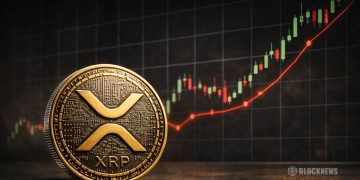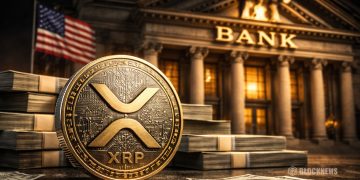In this recap of the crypto world, we will explore the events and news that had the most significant impact in the past week of July 10. Our focus will be on the following developments:
- Arkham Intelligence Unveils Marketplace for On-Chain Analytics
- Coinbase Wallet Introduces Secure Messaging
- Google Play Opens Doors to Web3
- Polygon Proposes Transition to Polygon 2.0 with Upgraded Token $POL
- Ripple Wins Case Against SEC
Arkham Intelligence Unveils Marketplace for On-Chain Analytics
Arkham Intelligence, a prominent on-chain analytics firm, has taken a significant leap forward in its mission to enhance transparency with the launch of the Arkham Intel Exchange. This pioneering exchange represents a crucial development, offering a marketplace for blockchain data and incentivizing skilled analysts to monetize their expertise and insights. With the launch of this platform, Arkham Intelligence aims to address the increasing demand for on-chain analysis from various stakeholders who require clear and detailed insights into blockchain activity but lack the time or expertise to conduct extensive research themselves.
At the core of the Arkham Intel Exchange lies a distinctive bounty mechanism that connects buyers and sellers of on-chain data. Users can post bounties, specifying their desired on-chain data, while researchers fulfill these bounties by providing the requested information. To encourage participation, users must lock up a certain amount of cryptocurrency as a reward for fulfilling the bounty. Researchers, known as “bounty hunters,” are duly compensated with bounty rewards for their meticulous research and the provision of requested information.
While the launch of the Arkham Intel Exchange underscores the growing demand for on-chain analytics and sets a precedent for increased transparency, questions arise regarding the democratization of Web3 data and potential limitations imposed by placing key metrics behind a bounty paywall. Determining the ultimate impact of this marketplace on accessibility and inclusivity will require careful observation and analysis. Read more on this here.
Coinbase Wallet Introduces Secure Messaging
Coinbase, a prominent cryptocurrency exchange, has introduced an exciting new feature on its Coinbase Wallet platform that is set to revolutionize communication within the digital asset space. With the addition of secure messaging, users can now engage with the crypto community directly through their wallets, creating an interoperable platform that combines the best elements of popular messaging apps like Telegram and payment services like Cash App.
Coinbase Wallet leverages the power of XMTP to provide users with end-to-end encrypted messaging directly within their wallets. This means that individuals can communicate securely with others using their Ethereum identities, such as .eth domains, .cb.id usernames, or Lens IDs.
A key advantage of XMTP is its focus on decentralization. Although the protocol currently operates on a network owned by XMTP Labs, the development team has plans to gradually decentralize the network in the future. This move towards decentralization aligns with the fundamental principles of blockchain technology, ensuring greater transparency, security, and resilience in the messaging infrastructure.
In addition to this, messaging on Coinbase Wallet offers users a unique sense of ownership and portability. Unlike traditional messaging apps that tie user data to a specific company, Coinbase Wallet’s messaging feature is tied to the user’s wallet address. This means that individuals have complete control over their messaging data and chats. Even if users decide to switch platforms or adopt other XMTP-compatible apps, they can seamlessly migrate their conversations and maintain uninterrupted access to their messaging history. Read more on this here.
Google Play Opens Doors to Web3
In a groundbreaking policy shift, Google Play has opened its doors to Web3 technology by allowing developers to integrate NFTs and other digital assets into their apps and games. This transformative move aims to enhance user experiences, foster engagement, and promote loyalty by introducing unique NFT rewards. This decision was made in collaboration with industry partners like Reddit, whose Collectible Avatar NFT offerings have enjoyed significant success.
As part of the updated guidelines, developers are now required to provide transparency about tokenized digital assets within their apps. This includes clear information on buying, selling, or earning these assets, ensuring that users have a comprehensive understanding of their participation in the Web3 ecosystem.
Furthermore, to ensure user protection and comply with regulatory standards, Google Play’s updated guidelines strictly prohibit dev teams from promoting or glamorizing potential earnings from playing or trading activities. This aligns with the platform’s existing policies on real-money gambling, games, and contests, as the intention is to prevent users from engaging in securities or deceptive practices. Google Play is committed to creating a safe environment where users can explore the benefits of blockchain without unnecessary risks.
Looking ahead, Google Play intends to continue working closely with developers and industry partners to enhance support for blockchain-based app experiences, including the growth of secondary markets. By fostering collaboration and open dialogue, Google Play aims to create a thriving ecosystem that brings more fun and delightful experiences to the apps and games available on its platform. The introduction of this blockchain policy signifies a new chapter for Google Play and presents exciting possibilities for developers and users alike. Read more on this here.
Polygon Proposes Transition to Polygon 2.0 with Upgraded Token $POL
Polygon, a leading Ethereum scaling solution, is embarking on a transformative journey with its proposed upgrade from $MATIC to $POL. Accompanied by a newly redesigned system architecture, the Polygon team is looking to launch an upgraded token. With this change, Polygon aims to unlock infinite scalability, seamless protocol interaction, and enhanced utility within its ecosystem.
Positioned as a “3rd generation token” after Bitcoin and Ethereum, POL is to become the backbone of the Polygon ecosystem. It will serve as the utility token across all Polygon protocols, including Polygon PoS, zkEVM, and Supernets, unlocking new levels of efficiency and functionality. As per Coindesk, POLs’ primary purpose is to align and incentivize validators to contribute valuable work to the network. By offering POL as a means of incentivization, Polygon aims to foster a cohesive ecosystem where validators play an essential role in the network’s growth and development.
Should the proposal be accepted, network validators will have the ability to facilitate the operation of multiple chains using POL as a unified token. The Polygon team intends to provide further details about the token’s smart contracts through a forthcoming Polygon Improvement Proposal (PIP). These smart contracts will lay the foundation for POL’s functionalities, ensuring seamless integration within the Polygon 2.0 ecosystem.
Ripple Wins Case Against SEC
After three years of legal battle, Honorary US District Judge Analisa Torres has delivered a significant verdict in favor of Ripple, determining that XRP is not a security in relation to programmatic sales on digital asset exchanges. The announcement of this decision has had an immediate and profound impact, as XRP experienced a staggering surge of over 25% in value, skyrocketing from $0.47 to surpass $0.60 in just an hour after the decision.
Judge Torres’ decision centers around the finding that individuals purchasing XRP were not investing capital into a common enterprise, which, in this case, would refer to Ripple Labs. This critical finding renders XRP noncompliant with the Howey Test, a well-established criterion for determining whether an investment qualifies as a security. As it fails to meet the requirement of capital investment into a “common enterprise” defined as an incorporated entity, XRP cannot be considered a security.
If XRP, as one of the largest cryptocurrencies by market capitalization, is not classified as a security, it paves the way for similar determinations to be made for other digital assets. While the ruling does not explicitly define XRP as a commodity, the arguments supporting its classification gain considerable strength.
Judge Torres’ ruling carries immense bullish implications for both Ripple and the broader cryptocurrency market. The ruling has sparked renewed optimism among altcoin investors, with the prospect of broader commodities classification gaining traction. As the effects of this momentous decision continue to unfold, the crypto industry braces itself for a new era of regulatory challenges and renewed confidence in Ripple and XRP. Read more on this here.














